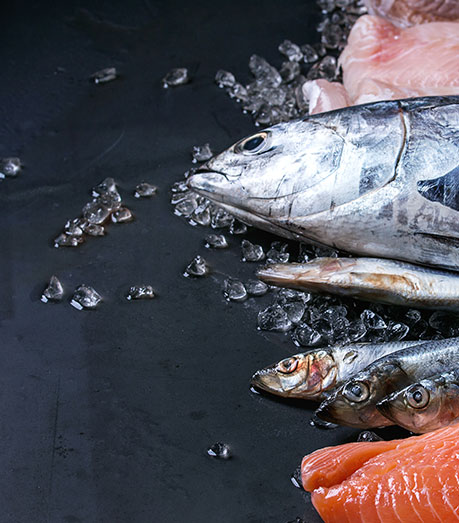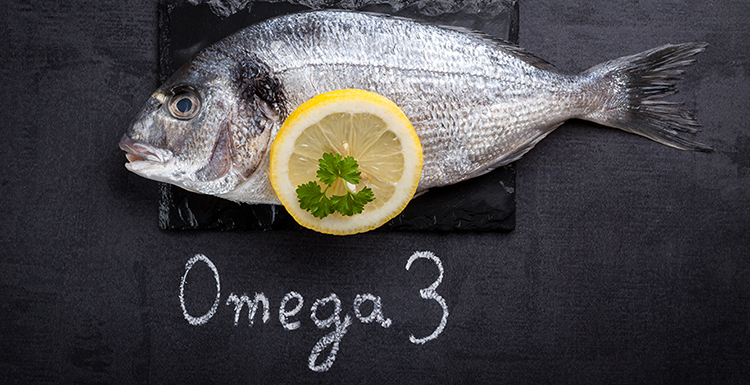Consisting of three types (ALA, EPA and DHA), Omega-3 fatty acids are an essential ‘good’ fat that promotes our well-being. It is necessary for normal growth and to keep our bodies functioning well.
It’s important to note that our body is unable to produce Omega-3. Thus, it’s crucial that we consume foods that contain this essential nutrient.
Sources of Omega-3
The three different types of Omega-3 fatty acids have different sources. Primarily, ALA can be found in plant sources. Look to food items such as soybean products, flax seeds and walnuts for your source of ALA.
On the other hand, EPA and DHA are found in fatty fishes and seafood. EPA and DHA bring the most direct health benefits so it’s important to incorporate them into your diet.
To get your fix of EPA and DHA, sardines, mackerel, tuna and salmon are four types of fish which are high in Omega-3. The best thing about these fishes is that you can consume them both fresh and canned to enjoy their Omega-3 goodness.
If you are skeptical about consuming canned fish, rest assured that canned foods are not necessarily unhealthy. Introduced in the 1800s, canning is a popular, safe way to store and preserve food. The canning process does not change the physical properties of the food, and often the high heat increases the antioxidant properties of the food.


At Ayam Brand, we are proud that we have a range of products that have been awarded the Healthier Choice Symbol, giving consumers the confidence that our products are good for them. Our products as such Sardines In Extra Virgin Olive Oil, Mackerel In Tomato Sauce and Tuna Flakes in Olive Oil Light are some great choices to meet your Omega-3 dietary needs.
As our body cannot produce Omega-3, some people may turn to supplements to get their necessary dose. Walk into a pharmacy or health store and you’ll see shelves of fish oil supplements that contain Omega-3.
While supplements may be an easy way to consume Omega-3, getting this fatty acid through natural forms is still preferable. For one, eating fish such as sardines, tuna and salmon provide you with a whole host of nutrients, not just Omega-3. These fish are also give you nutrients such as potassium, selenium and calcium.
Secondly, an overdosage of Omega-3 can be toxic for you. This risk is higher when consuming fish oil supplements as eating Omega-3 in its natural form (e.g. in fatty fishes) provides a natural balance of nutrients that is essential for good health.
Health Benefits of Omega-3
So why is Omega-3 good for us? Here are the top 3 reasons to incorporate Omega-3 in your diet:
1. Promotes heart health
Studies have shown that Omega-3 is good for the heart. For instance, Omega-3 can help manage blood pressure, raise the levels of ‘good’ HDL cholesterol, and keep blood arteries flowing smoothly by prevent plaque build-up.
2. Promotes eye health
DHA is an important component of our eye, making up over 90% of its structure. Consuming enough Omega-3 ensures that our eyes continue to function well and reduces the risk of macular degeneration.


3. Promotes brain health
Consuming enough Omega-3 is particularly essential for pregnant women as it is needed for the normal growth and development of the brain in a foetus. This is because DHA makes up 40% of the polyunsaturated fatty acids in the brain. Infants can also benefit by consuming Omega-3 as it helps in their brain development.
For adults, Omega-3 has been shown to fight anxiety and depression. It could also be beneficial in the fight against mental decline in old age.
How can you be sure you’re consuming enough Omega-3? One simple way is to eat two servings of fish per week.
One serving of fish is equivalent to:
-
90g of fatty fish such as sardines, salmon, mackerel, or tuna
-
One to two pieces of Ayam Brand Sardines
-
¾ cup of Ayam Brand Tuna Flakes
Ayam Brand™ products can be found at all leading supermarkets and hypermarkets.











